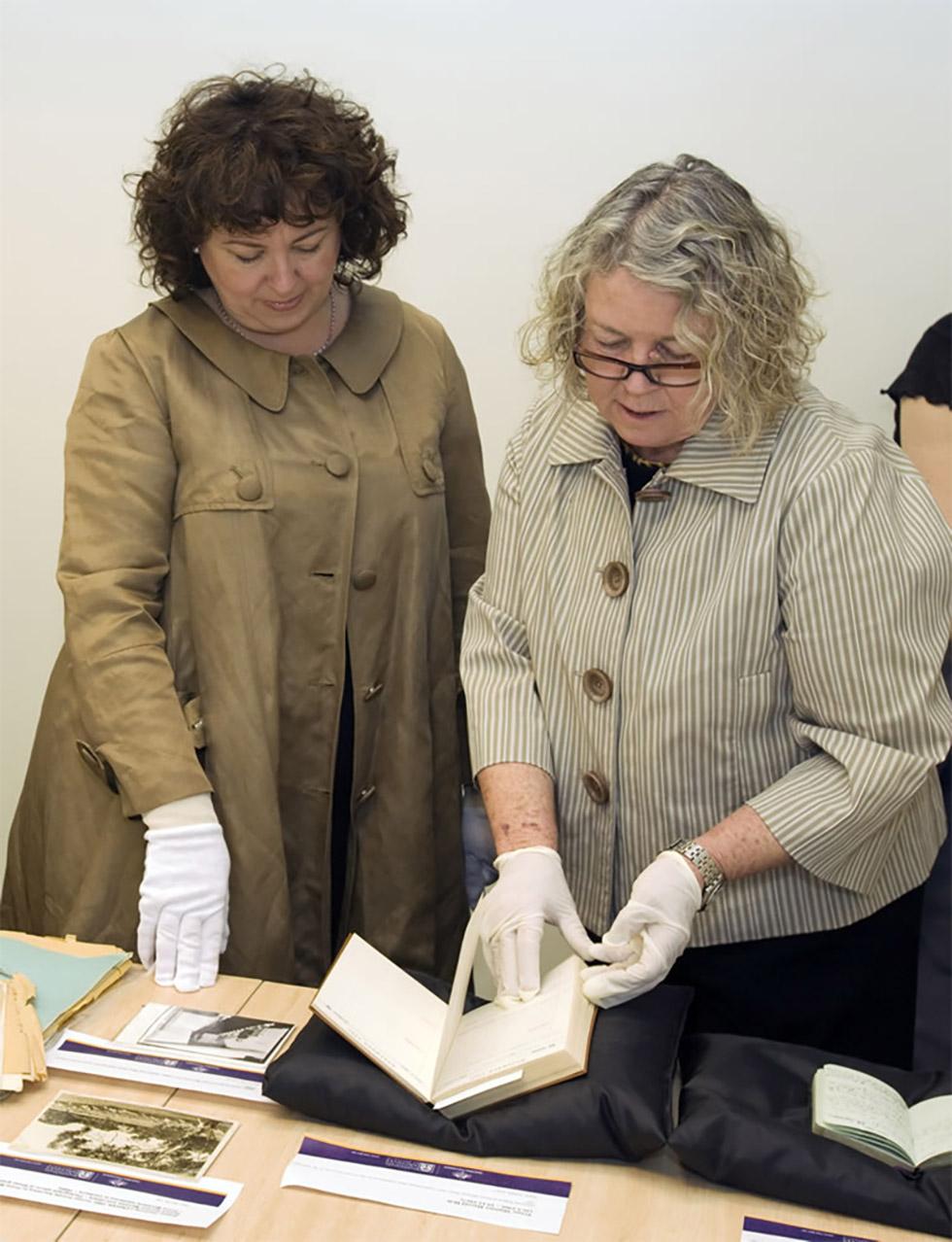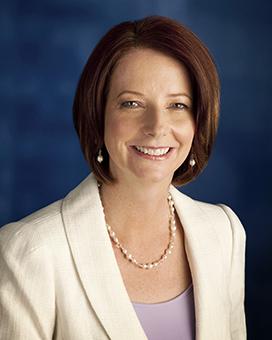Thérèse Rein was born in Adelaide on 17 July 1958, the daughter of John and Elizabeth (McLean) Rein. John Rein, a Royal Australian Air Force (RAAF) navigator during World War II, suffered a severe spinal cord injury in a plane crash and while convalescing met physiotherapist Elizabeth McLean at Sydney’s Concord Repatriation Hospital. Although confined to a wheelchair, John Rein retrained as an aeronautical engineer. The couple settled in Adelaide when he was offered a job at the Weapons Research Establishment in Salisbury, South Australia. In 1962, he took part in the Commonwealth Paralympics as one of Australia’s archery team.
After attending Adelaide's St Peter’s Girls School and Firbank Grammar in Melbourne, Rein graduated from the Australian National University in 1981 with honours in psychology. She had met Kevin Michael Rudd in their first year in Canberra when both were residents of Burgmann College and members of the Student Christian Movement. They married on 14 November 1981, immediately after Thérèse completed the work for her fourth year in Psychology and while Kevin was in the foreign affairs training program.
For the first years of their marriage they lived overseas, first in Sweden, where Rudd was a cadet diplomat at the Australian Embassy in Stockholm and later in Beijing, when he was posted to the Embassy in China. In 1986, they returned to Australia, with their 2-year-old daughter Jessica, to live in Canberra. Their first son, Nicholas, was born that year, and Rein worked part-time as a rehabilitation counsellor, under a program of the Hawke Labor government to help people find re-employment.
When the family moved to Brisbane in 1988, Rein continued to work part-time, assisting people who needed retraining after workplace injury. With a colleague in 1989, she set up a private company, Work Directions, to provide these services. It grew rapidly, extending into New South Wales. In 1993, the year Rudd and Rein's youngest son, Marcus, was born, Work Directions won its first government contract, under the Keating Labor government's outsourcing policy.
In 1998, two years after their election, the Coalition government under John Howard privatised employment services and replaced the Commonwealth Employment Service with a Job Network agency. Thérèse Rein served on the board of the National Employment Services Association and as president of the Queensland Association of Rehabilitation Counsellors.

Thérèse Rein at the National Archives of Australia viewing a diary from Prime Minister Holt Series, 2009. C910422
By 2006, Rein’s company, renamed Ingeus Ltd, had grown to a transnational operation with 66 offices in Australia, Britain, France and Germany and was the third-largest provider of services to the Howard government's Job Network agency. The company board included the former head of the Australian Public Service, Mike Codd. Before the 2007 election campaign, Rein sold the Australian operations of the Ingeus Group.
When Rudd became Prime Minister on 3 December 2007, the couple moved into the prime ministerial residence, The Lodge, in Canberra, with their youngest son.
Rein was the first businesswoman to be prime ministerial spouse. She was also the first to retain her own name.
While overseeing overseas operations of Ingeus in the United Kingdom, France, Germany and Sweden, Rein developed a prominent public role as prime ministerial spouse. When her own schedule allowed, she accompanied the Prime Minister on overseas visits and hosted official events at The Lodge in Canberra and at Australia’s official Sydney residence for visiting dignitaries, Kirribilli House.
Rein’s distinctive contribution to public life was her commitment to reducing the impact of inequity and injustice with practical strategies. She gave active support to disability organisations, homelessness and child abuse initiatives, teenage mental health, the national Indigenous literacy project and OzHarvest. She employed both her position and the prime ministerial residence in making an effective contribution, including hosting numerous lunches and teas where corporate leaders and social activists could exchange views and find common cause.
Summarising the public role of prime ministerial consort she inherited, Rein observed that ‘you bring your passions, interests, and strengths, your family and who you are. Everyone will do this job differently.’
An admired and stoutly loyal prime ministerial spouse, Rein was again at her husband’s side when he stood down as Labor Party leader and ceased to be prime minister on 24 June 2010. The following month, the family moved out of The Lodge and back into their home in the Brisbane riverside suburb of Bulimba.
In December 2010, the Australian Human Rights Commission awarded Rein the 2010 Human Rights Medal, a major accolade in the field, for her long-term dedication to human rights, especially the rights of people with disability.
Sources
- Legge, Kate, ‘The Power and the Passion’, Weekend Australian Magazine, 18 July 2009, pp.10–16.
- Lord, Gillian, ‘Free Rein’, Canberra Times Panorama, 5 June 2010, pp.6–9.





